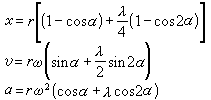1) dynamic drainage consolidation


动力排水固结
1.
Indoor model test of dynamic drainage consolidation method of soft soil


软土动力排水固结的室内模型试验研究
2) dynamic drainage consolidation


动力排水固结法
1.
Based on the measurement in site, the change of pore water pressure in saturated soft clay foundation improved by dynamic drainage consolidation is analyzed and studied.
基于现场实测 ,对动力排水固结法处理饱和软粘土地基过程中的孔隙水压力变化特性进行了分析研究 ,发现孔隙水压力增长与消散具有独特的规律 ,所得结论为动力排水固结法的工程设计和理论研究提供了依
3) dynamic drainage consolidation method


动力排水固结法
1.
The mechanism,technology and application range of dynamic drainage consolidation method and dynamic consolidation method are compared.
对动力排水固结法与动力固结法在加固机理、施工工艺、适用范围等方面进行了比较,对目前采用该法施工的工程实例进行了分析,指出了动、静荷载联合作用加固软土地基时的临界填土厚度和孔隙水压力的主要影响因素,提出了有效加固深度的范围及最佳夯击能的确定方法。
4) dynamic consolidation by drainage


动力排水固结法
1.
Mechanism and technology characteristics of dynamic consolidation by drainage;


动力排水固结法的加固机理及工艺特征
2.
Based on practice of littoral soft clay founation treated with dynamic consolidation by drainage method in Shenzhen, the design, construction and in-situ monitoring of this method were presented.
结合动力排水固结法在深圳滨海软土地基加固工程实践 ,较详细地对该法的设计、施工、现场监测等进行了说明 ,并对加固机理进行初步理论分析探
3.
According to the experimental data of soft clay foundation treated with dynamic consolidation by drainage,the laws of pore water pressure and deformation of saturated soft clay under dynamic loading are discussed.
通过动力排水固结法处理饱和软粘土地基现场试验测试数据,寻求动荷载作用下饱和软粘土的孔压和变形的发展规律,发现同一深度土体超静孔隙水压力的消散与变形具有一致性关系。
5) the method of dynamic consolidation by drainage


动力排水固结法
1.
More and more theoretical study and successful engineering application examples indicatied that the method of dynamic consolidation by drainage (MDCD) for improving soft clay foundation can achieved the anticipative effect in proper treatment.
越来越多的理论研究及成功的工程实例表明,如果处理得当,采用动力排水固结法加固软粘土地基,可以达到预期的加固效果。
6) static-dynamic drainage consolidation


静动力排水固结
1.
In-situ tests and analyses on vibration influences during mud ground improvement with static-dynamic drainage consolidation;
静动力排水固结法处理淤泥软基振动试验研究
补充资料:动力机械:内燃机动力学
研究内燃机运转中的力学现象的科学。其主要任务是研究分析内燃机运转时各主要零件的运动规律及其受力情况﹐用以作为内燃机零件设计﹑计算的依据。它还研究这些力对内燃机动力装置的影响及其消减方法。内燃机动力学的主要内容为曲柄连杆机构运动学﹑曲柄连杆机构动力学和内燃机平衡分析等。
曲柄连杆机构运动学 研究曲柄﹑连杆﹐尤其是活塞的运动规律。活塞作周期性往复运动时的位移 、速度
、速度 和加速度
和加速度 可用下述各式近似求算
可用下述各式近似求算

式中 为曲轴转角﹔
为曲轴转角﹔  为曲轴旋转角速度﹔
为曲轴旋转角速度﹔ 为曲柄半径﹔
为曲柄半径﹔ 为曲柄半径
为曲柄半径 与连杆长度
与连杆长度 之比﹐即
之比﹐即  =
=  /
/ 
曲柄作回转运动﹐连杆作复杂的平面运动。连杆的运动往往被简化分解为随活塞组的往复运动和随同曲柄的旋转运动。
曲柄连杆机构动力学 研究分析曲柄连杆机构(见曲柄滑块机构)在运动中力的生成﹑传递和输出。作用在曲柄连杆机构上的力有曲柄连杆机构运动时产生的往复惯性力和离心惯性力﹐以及内燃机气缸内的气体压力。
说明:补充资料仅用于学习参考,请勿用于其它任何用途。
参考词条